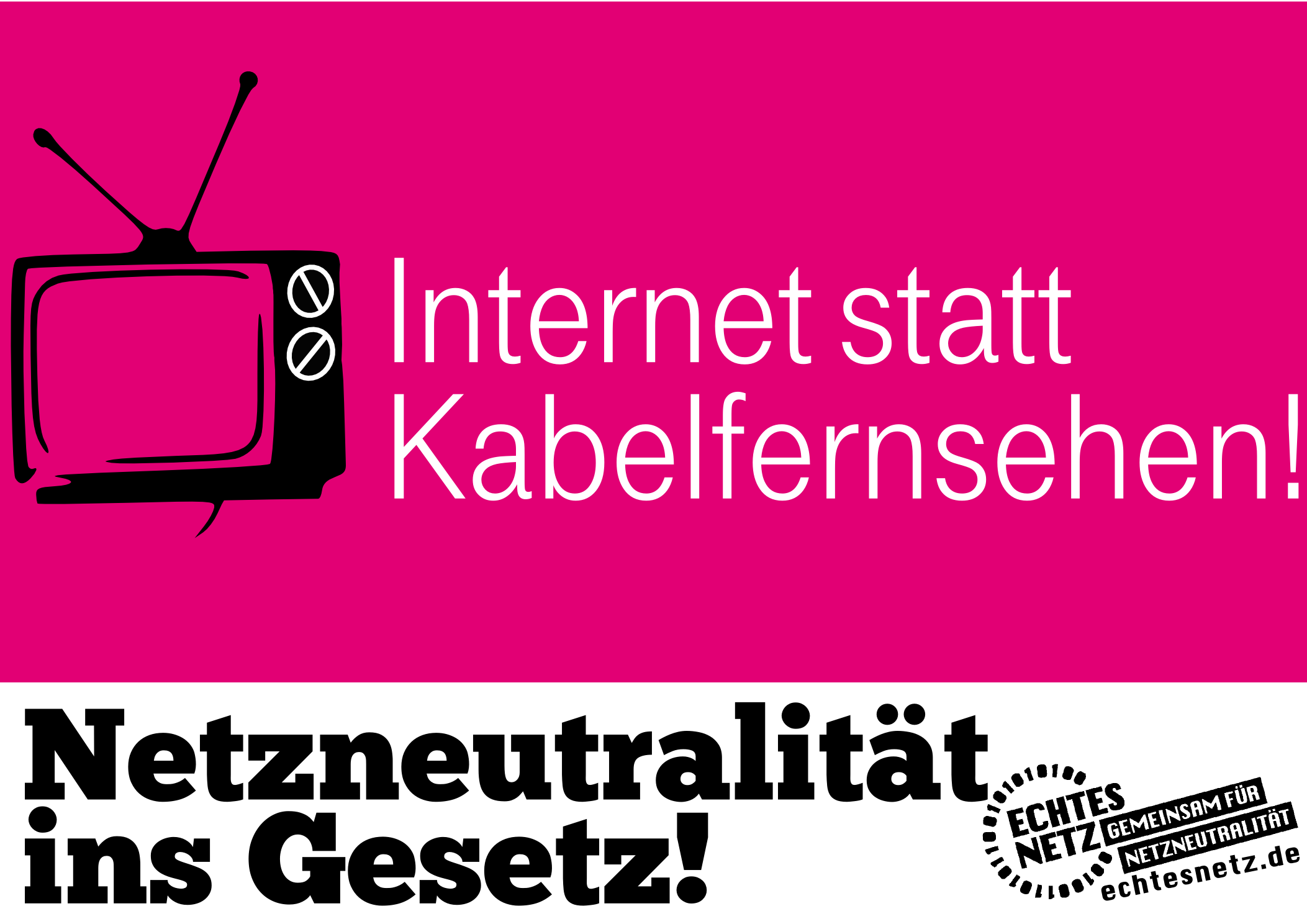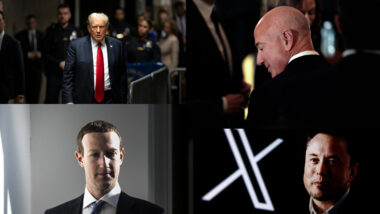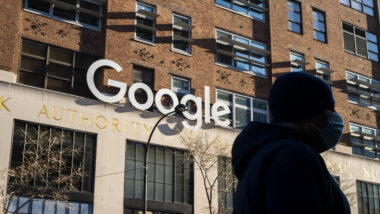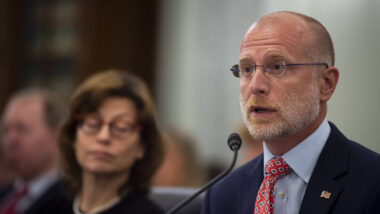 In der US-Debatte um Netzneutralität mischen immer mehr bekannte Netz-Unternehmen mit. Das ist etwas, was uns in Deutschland leider fehlt. Wie bereichernd wäre die Debatte hierzulande, vor allem im Hinblick auf die nahende Entscheidung im EU-Ministerrat, wenn sich bekannte Start-Ups und Web-Unternehmen für ein offenes Netz zu Wort melden würden, wie man das gerade in den USA beobachten kann?
In der US-Debatte um Netzneutralität mischen immer mehr bekannte Netz-Unternehmen mit. Das ist etwas, was uns in Deutschland leider fehlt. Wie bereichernd wäre die Debatte hierzulande, vor allem im Hinblick auf die nahende Entscheidung im EU-Ministerrat, wenn sich bekannte Start-Ups und Web-Unternehmen für ein offenes Netz zu Wort melden würden, wie man das gerade in den USA beobachten kann?
Der Gründer und CEO von Kickstarter, Yancey Strickler, kommentiert in der Washington Post die Gefahr von Überholspuren im Netz: FCC’s ‘fast lane’ Internet plan threatens free exchange of ideas.
Supporting an Open Internet.
It’s easy to get lost in the minutiae and cynicism of the Net Neutrality debate. It’s everything we hate about politics: money trumping common sense, and the loudest voices being those with the cash to hire lobbyists. Unfortunately, just believing in the common good rarely translates into political influence. But sometimes it does — as we saw with the SOPA victory in 2012, our voices can be powerful when we use them together. […] The Internet as we know it depends on an open Web with equal access for all. That core principle is very much in doubt. Please join us in making a stand — for everyone’s sake. Thanks
Althea Erickson, director of public policy, beim Handarbeits-Marktplatz etsy.com kommentiert im Firmenblog: Join Etsy in Fighting for an Open Internet.
We spend considerable resources ensuring that large, high-resolution photos load quickly and efficiently. We have also considered offering our sellers the ability to create and share videos, which they could use to introduce themselves and the unique process behind their products. But our low margins would not allow us to pay for priority access to ensure our site loaded as quickly as rival sites if the FCC’s proposed rules went into effect. If a consumer were to click on an Etsy shop and perceive delays in images loading or videos buffering, they would likely click away to another site, and our seller would lose that sale. We can’t predict the future of e-commerce or product innovations, but we want to ensure that Etsy sellers can reach buyers with the same technologies as any other online retailer.
Sowas brauchen wir auch in Deutschland! Auf EU-Ebene entscheidet sich in den kommenden Monaten, ob der EU-Ministerrat sich auch den Empfehlungen des EU-Parlaments aus dem Frühjahr anschließt und sogenannte „Specialized Servcies“, die angesprochenen Überholspuren gegen Geld, stark reguliert. Oder ob sich bei den intransparenten Verhandlungen im EU-Rat die Positionen der Telekommunikationsunternehmen durchsetzen, die in der Regel den besseren Zugang zu den einzelnen Regierungen haben. Es ist z.B. immer noch unklar, wie sich Deutschland dort positioniert. Wichtig ist, dass diese Debatte geführt wird und sich auch diejenigen zu Wort melden, deren Geschäftsmodelle bisher massiv von einem offenen Netz profitiert haben.





Welche erfolgreichen Netzfirmen und Startups gibt es denn in Deutschland? Die Telekom bzw. T-Systems, Gayromeo, AVM, Heise, Spiegel Online und Fefe sind die einzigen, die mir einfallen.
Von der Telekom ist per Defintion keine Unterstützung zu erwarten, Gayromeo hat seine Server wg. der deutschen Jugendschutzbestimmungen in die Niederlande gestellt, AVM und Heise tun doch schon was sie können, und Spiegel Online lässt immerhin Sascha Lobo Artikel schreiben. Und Fefe kann man ja nicht mal mehr als „Unternehmen“ bezeichnen seit er die T-Shirt-Werbung wieder abgeschaltet hat.
Von wem sollte denn die Unterstützung sonst noch kommen? Von Holtzbrinck mit ihrem KaputtVZ? Von Yasni?
Just off the top of my head:
wooga.com
xing.com
zalando.com
But I’m not sure you mean, famously well heeled in California or ‚erfolgreich‘, im einfachen sinne?
wooga.com kantne ich noch gar nicht (was ich aber eher als Vorteil denn als Nachteil ansehe), Xing und Zalando sind mir schlicht nicht eingefallen. Sind die eigentlich auch außerhalb Deutschlands halbwegs bekannt/erfolgreich?
Genau! Leute sollten den Neoliberalen nach nur deren neoliberale Propaganda konsumieren und nicht andere, alternative Sites zu besuchen. Ich warte auch ständig darauf, wann man mir RT abknipst. Weil da bekomme ich Infos, die mit der neoliberalen „Wirklichkeit“ wenig vereinbar ist. Aber mit dem Zeug, was ich so auf der Straße draußen sehe, schon.
Das ist übrigens die Achyllesfärse des ganzen Bullshits. Die Ausrede, nach dem Motto „Wir haben kein Traffic“ ist so bescheuert, wie „Wir haben kein Geld“. Ja, wo ist das Geld denn? Wo ist es? Nanu, wo ist es? Hat es sich versteckt?